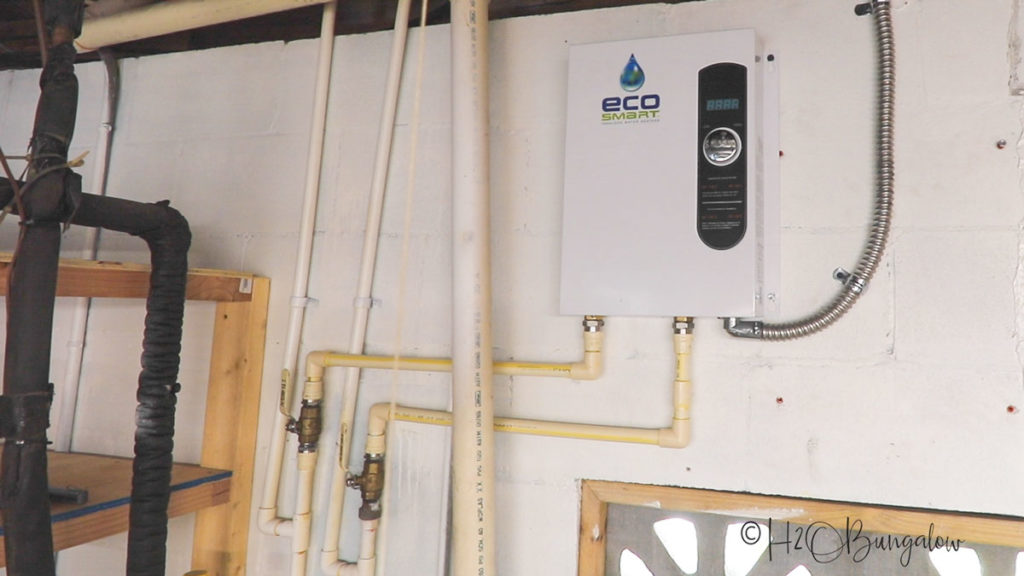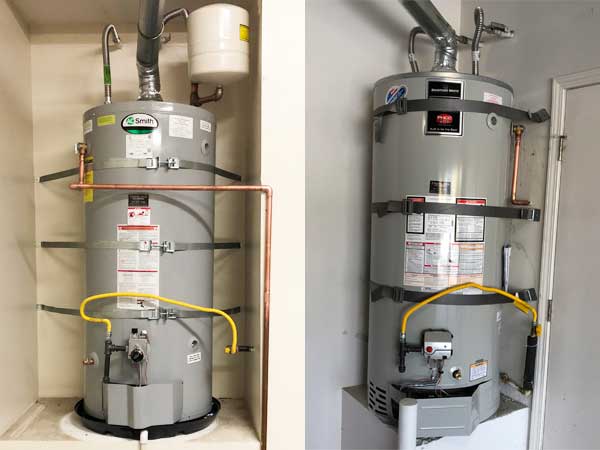Top-rated water heater installation in Buena Park – contact us today
Top-rated water heater installation in Buena Park – contact us today
Blog Article
Just How to Select the Right Water Heating System Installation for Your Home
Choosing the ideal water heating unit installation for your home requires a comprehensive understanding of various factors, including your house's certain hot water demands and the kinds of heaters readily available. Furthermore, factors to consider around energy efficiency and installation prices play a vital function in the decision-making procedure.

Examine Your Warm Water Requirements
Assessing your warm water needs is crucial for choosing an appropriate water heater that effectively satisfies your family demands. To start, consider the number of occupants in your house and their daily regimens, as these aspects substantially affect hot water consumption. Bigger houses normally require greater warm water capability for tasks such as showers, laundry, and dishwashing.
Recognize when your household needs the most hot water all at once. Additionally, take into consideration the specific home appliances and components that consume warm water, including washing dishwashers, faucets, and devices.
It is additionally vital to represent any type of future changes in your household, such as added member of the family or adjustments in lifestyle that may boost warm water demand. Evaluate the power effectiveness of potential water heater alternatives, as this can significantly impact long-lasting operating expenses. By extensively examining these variables, you can make an educated choice that aligns with your hot water requirements and advertises efficient energy usage in your house.
Check Out Different Water Heater Kind
When checking out different hot water heater types, it's necessary to understand the different options readily available and their unique functions. One of the most usual kinds include storage tank hot water heater, tankless water heating systems, heat pump water heaters, and solar hot water heater.
Container water heating units are traditional systems that store a details quantity of warm water, making them suitable for families with constant demand. Nonetheless, they can run out of warm water throughout top use.
Tankless water heating systems, on the other hand, warmth water on need, providing an unlimited supply. They are suitable for smaller sized spaces and can be extra energy-efficient, but might require a higher upfront investment.
Heatpump hot water heater use electricity to transfer warm from the air or ground, making them reliable alternatives in moderate climates. They can be much more complex to set up and may require additional space.
Last but not least, solar water heating units harness sunlight to warm water, using an eco-friendly alternative. They call for a substantial initial financial investment and depend on warm problems yet can dramatically minimize utility prices in time.
Each type has distinctive advantages and factors to consider, making it vital to assess which finest fits your family's requirements and preferences.
Think About Power Efficiency Rankings
Recognizing the different kinds of water heaters normally results in the factor to consider of their energy performance scores. Power effectiveness is a critical variable in choosing a hot water heater, as it straight influences your energy expenses and the environmental footprint of your home. Water heaters are typically ranked utilizing the Power Factor (EF) or the newer Attire Power Variable (UEF) metrics, which quantify their effectiveness by measuring the energy eaten versus the warm water created.

It is likewise necessary to assess the Energy Star qualification, which signifies that a hot water heater meets rigorous performance criteria. Choosing a water heating unit with a high power effectiveness ranking can not only decrease your energy expenses but also boost the total comfort of your home, making it a vital facet of the decision-making procedure.
Evaluate Installation Prices
Assessing installment expenses is an important action in the selection procedure for a hot water heater, as it includes not only the rate of the system itself but additionally the expenses connected with its installation. It is important to get thorough price quotes from numerous specialists to make certain an extensive understanding of prospective costs. This consists of labor costs, any required authorizations, and materials needed for the installation.
When evaluating installation costs, consider the complexity of the installation procedure. Variables such as the location of the hot water heater, existing plumbing facilities, and whether the setup entails replacing an old device or installing a brand-new system can considerably affect complete expenditures. Retrofitting an existing space may sustain extra prices compared to a straightforward installation.
In addition, be conscious of the long-lasting ramifications of setup prices. Some hot water heater may have greater upfront installation costs yet offer higher energy performance, causing savings on power costs in time. Eventually, a detailed assessment of setup costs, integrated with an understanding of the unit's long-term performance, will direct you in making a notified choice that lines up with your budget and demands.
Review Upkeep Needs
Routine maintenance is necessary for ensuring the durability and effectiveness of a water heater. This process usually includes regular assessments, cleaning, and essential changes to keep the device in optimum working problem. House owners ought to schedule annual specialist upkeep, which includes inspecting the anode pole, flushing the tank to get rid of debris build-up, and examining the pressure alleviation valve.
For tankless hot water heater, maintenance focuses on descaling the system to avoid mineral build-up, especially in areas with difficult water. Furthermore, it is necessary to check and tidy filters on a regular basis to maintain appropriate water circulation.
Homeowners should additionally do routine aesthetic examinations, seeking indicators of leakages, corrosion, or unusual sounds, which may show underlying problems. water heater. Regularly examining the temperature and pressure safety valve is also crucial, as a malfunctioning shutoff can result in harmful stress accumulation
Lastly, complying with the supplier's details maintenance guidelines is essential. These guidelines frequently consist of suggested upkeep intervals and certain tasks to make sure the system runs successfully and safely. By sticking to proper maintenance methods, homeowners can lengthen their hot water my explanation heater's lifespan and boost its effectiveness, eventually minimizing energy prices and minimizing the chance of costly repair work.
Conclusion
Selecting the ideal hot water heater setup demands a detailed evaluation of home hot water needs, the evaluation of various kinds of hot water heater, and factor to consider of energy effectiveness scores. Furthermore, an analysis of setup prices and upkeep obligations is crucial for making certain optimum performance and long life. By adhering to these standards, house owners can make educated decisions that not just provide to immediate requirements yet additionally advertise long-lasting power effectiveness and cost-effectiveness in water heating services.
Picking the appropriate water heating unit setup for your home needs a comprehensive understanding of different aspects, including your home's particular warm water demands and the kinds of heating systems available.Examining your warm water needs is vital for picking an appropriate water heating unit that successfully meets your house needs. Water heating systems are commonly rated utilizing the Power Factor (EF) or the more recent Attire Energy Aspect (UEF) metrics, which quantify their efficiency by determining the power taken in versus the hot water created.
Some water heating systems may have why not try these out greater in advance setup costs yet provide better power efficiency, leading to savings on power bills over time. water heater installation.Picking the ideal water heating system installation necessitates a thorough evaluation of home warm water needs, the exam of different kinds of water heaters, and consideration of power efficiency ratings
Report this page